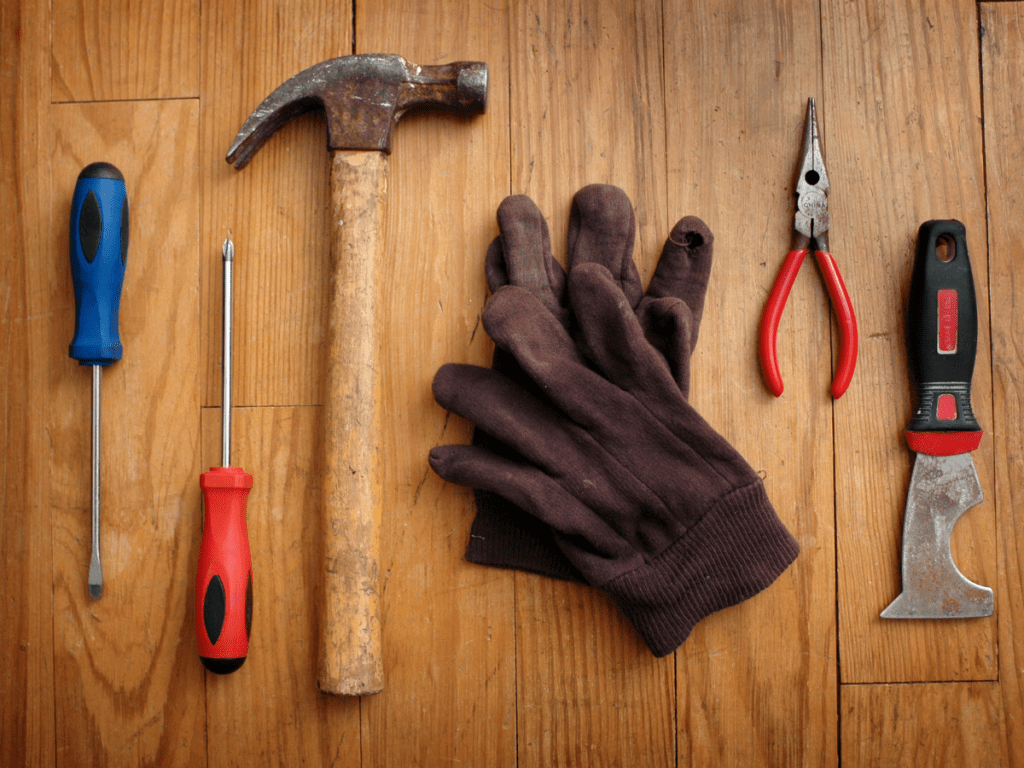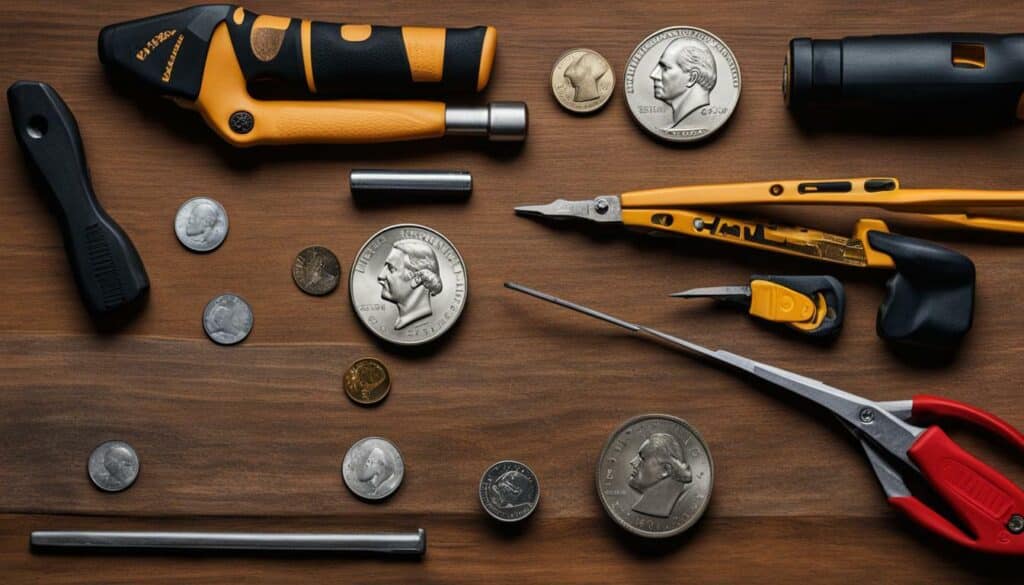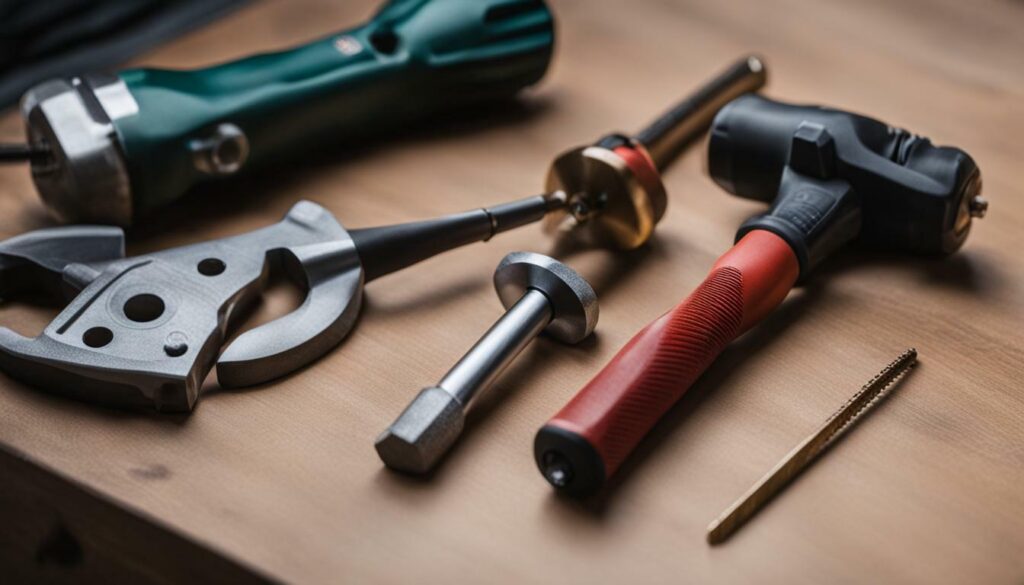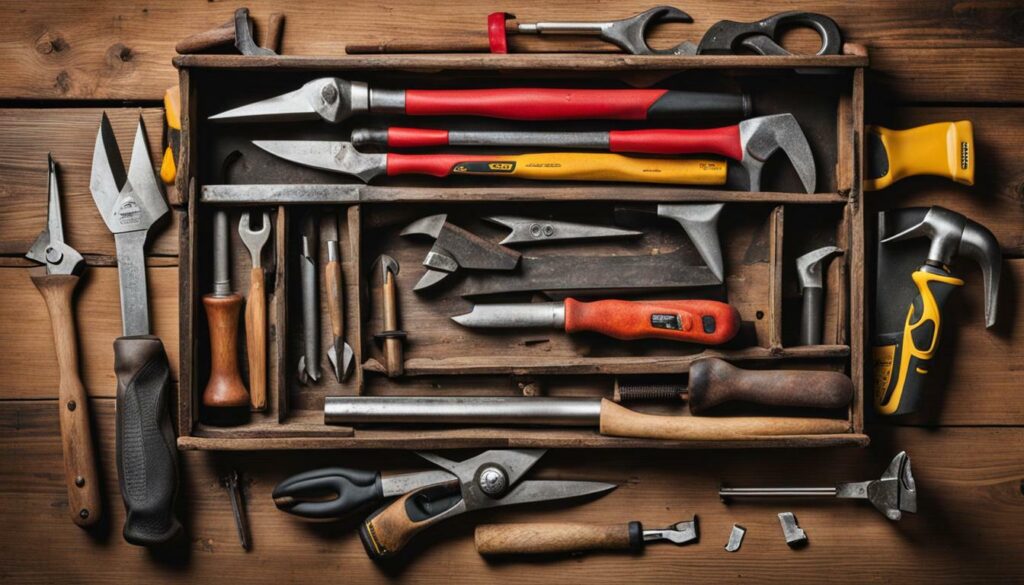
Are you tired of being trapped in a mundane 9-to-5 routine? Craving the thrill of a versatile career that keeps you on your toes? Well, hold onto your tool belt because we’ve got some handy news for you! Welcome to the world of the “Handyman Exemption” in Dallas, Texas, where job opportunities and flexibility collide like an expertly wielded hammer and nail. So, grab your curiosity and join us on this exhilarating journey as we unlock the secrets to a truly handy life!
The handyman exemption in Dallas Texas is a game-changer for job seekers looking for flexibility and diverse work opportunities. This guide is your key to understanding how this exemption opens doors to a dynamic career, allowing you to unleash your handy skills and seize control of your professional path. Get ready to explore the exciting world of handyman work in Dallas, where job satisfaction and freedom go hand in hand!
A Handyman’s Paradise in Dallas, Texas
If you’re a handyman in Dallas, Texas, you’ll be glad to know that there is a handyman exemption that allows you to perform certain tasks without requiring a license. This exemption provides a lot of flexibility and job opportunities for handymen who may not have gone through the process of obtaining a license.
The handyman exemption in Dallas Texas is an important consideration for anyone interested in pursuing work as a handyman. While similar exemptions exist in other states and cities, each location has its own set of rules and criteria that must be met to qualify.
In this article, we’ll explore the ins and outs of the handyman exemption in Dallas Texas – what it is, how it works, who qualifies for it, and more. We’ll also examine some of the benefits and drawbacks of obtaining this type of exemption so that readers can make informed decisions about their career choices.
What is a Handyman Exemption?
If you’re a handyman looking to work in Dallas, Texas, then you might have heard of the term “handyman exemption”. But what exactly does it mean?
At its core, a handyman exemption refers to the legal loophole that allows individuals to perform certain types of repair or maintenance work without having a contractor’s license. This means that if you meet certain criteria and perform only specific types of tasks, you may be exempt from obtaining a license before working.
Definition of the Term “Handyman”
A handyman is an individual who performs various types of repair or maintenance work for clients. The tasks can range from minor plumbing repairs and electrical work to painting and installing light fixtures.
What sets a handyman apart from other contractors is that they usually have no specific area of expertise but instead offer general handiwork services. Anyone can become a handyman as long as they have some basic skills and knowledge in various areas.
Explanation of the Exemption and Its Purpose
The purpose of the handyman exemption is to allow individuals who do not need nor want to pursue licensing for their profession but still want to earn income to provide repair services legally. The law recognizes that some small jobs do not require extensive training or education to complete safely. As such, it exempts these small jobs from requiring licensing under specific conditions such as monetary limits on individual projects and frequency restrictions per client per year, among others.
Overall, if you’re interested in becoming a handyman in Dallas, it’s crucial to understand the “handyman exemption” concept fully. Knowing whether or not your work qualifies for this exemption will help you avoid any legal issues when performing your job while giving clients peace of mind knowing they are working within state laws.
Who qualifies for the handyman exemption?
To qualify for the handyman exemption in Dallas Texas, there are certain criteria that must be met. First and foremost, you cannot advertise yourself as a contractor or engage in contracting work that requires a license. Additionally, the work you perform must be of a minor nature and not require special skills or trades.
In order to qualify for the exemption, the work you perform must also be limited to one or two family dwellings and cannot exceed $10,000 over a 12-month period. It is important to note that this exemption is not applicable to commercial properties or multifamily dwellings with three or more units.
Criteria that must be met to qualify
Aside from the restrictions mentioned above, there are other criteria that must be met in order to qualify for the handyman exemption. The work performed must be considered “cosmetic” in nature and cannot affect the structural components of a building. This means that repairs or installations related to plumbing, electrical systems, or HVAC units are not covered under this exemption.
Furthermore, any work performed under the exemption cannot require a permit from the city of Dallas. If your project requires permits or inspections from city officials, then it falls outside of the scope of this exemption.
Examples of individuals who may qualify
The handyman exemption is ideal for individuals who have experience in performing minor home repairs and improvements but do not possess the specialized skills required by licensed contractors. Examples include those who have worked as maintenance workers in apartment complexes, retirees looking to supplement their income by doing odd jobs around their neighborhood, or those who have recently completed home renovation projects on their own property. It is important to note that while you may qualify for this exemption based on your experience and skill set, it is still essential to follow all applicable laws and regulations when performing any type of construction-related work.
What types of work are covered under the handyman exemption?
Are you wondering what types of tasks fall under the handyman exemption in Dallas, Texas? Well, wonder no more! The following is a list of common tasks that are covered under the exemption:
- Installing or repairing drywall
- Painting or staining
- Minor plumbing repairs (such as fixing leaky faucets)
- Minor electrical work (such as installing light fixtures or ceiling fans)
- Installing or repairing flooring (such as carpet, tile, or wood)
Installing or repairing cabinets and countertops
Explanation of why certain tasks are exempt from licensing requirements
You may be wondering why these specific tasks are exempt from licensing requirements. Essentially, they are considered to be “minor” repairs and improvements that do not require specialized training or knowledge. For example, installing a light fixture does not pose the same level of risk as rewiring an entire house.
The handyman exemption allows individuals to perform these minor tasks without having to obtain a license. This is beneficial for both homeowners and handymen alike.
Homeowners can save money by hiring a handyman instead of a licensed contractor for smaller jobs, while handymen can increase their job opportunities without having to go through the time and expense of obtaining a license for each task they perform. Overall, it’s important to note that while certain tasks may be exempt from licensing requirements under the handyman exemption in Dallas, Texas, there are still limitations and restrictions on who can perform these tasks and how often they can be performed.
Limitations and restrictions
Being exempted from licensing requirements as a handyman in Dallas, Texas comes with certain limitations and restrictions that must be adhered to. Failure to abide by these regulations can result in fines or other legal consequences. It is important to be familiar with these limitations before advertising your services or accepting work.
Restrictions on advertising services as a handyman
One of the primary limitations of the handyman exemption in Dallas Texas is regarding advertising services. Handyman services cannot be advertised using any language or materials that falsely misrepresent the individual as being licensed or capable of performing work outside the scope of what is allowed under the exemption.
This means that you cannot advertise yourself as a contractor, plumber, electrician, or any other skilled trade unless you have the appropriate license. It’s critical to ensure that all advertisements for handyman services are truthful and accurate.
Advertising in violation of this restriction could result in fines and potentially cause damage to your reputation if clients feel misled by your ads. Therefore, it’s prudent to consult an attorney experienced in this area if you have any doubts about how you should advertise your handyman services.
Limits on the amount and frequency of work performed under the exemption
Another limitation of being a handyman is related to how much work you can perform under this exemption within a given timeframe. The state sets limits on both the amount and frequency of work allowed for those who qualify for this exception.
Handyman work must not exceed $2,000 per job site within 12 months from an individual client or owner/tenant unless specifically authorized by local ordinances. Furthermore, no more than two jobs can take place at once without violating state regulations.
It is important to keep track of all jobs performed under this exemption so as not to exceed these limits unknowingly, which could result in legal consequences. To wrap it up, being a handyman in Dallas, Texas, comes with certain restrictions and limitations.
These limitations are put in place to protect consumers and ensure that work is done within the scope of what is considered safe and appropriate for a non-licensed individual. Knowledge of these regulations will help you avoid any legal consequences while providing reliable and professional services to clients.
How to Obtain a Handyman Exemption in Dallas, Texas
If you’re looking to work as a handyman in Dallas, Texas, and wish to take advantage of the handyman exemption, it’s important to understand how to go about obtaining it. The exemption is granted by the Texas Department of Licensing and Regulation (TDLR) and is not automatic. Here are the steps you need to follow:
Steps to Apply for an Exemption
1. Determine your eligibility – Before applying for an exemption, make sure you meet all the criteria required by TDLR. You must not be licensed as a contractor or electrician, must not perform work on public buildings or commercial properties, and must only perform work on residential properties that are owner-occupied.
2. Complete the application – Download the TDLR handyman exemption application form online or request one from their office. Fill out all required fields accurately and completely.
3. Submit required documentation – Along with your application form, you’ll need to provide proof of identity, such as a driver’s license or passport, documentation proving you have liability insurance coverage, and copies of any other relevant licenses or certifications.
4. Pay fees – The fee for applying for a handyman exemption varies depending on whether it’s your first time applying or renewing an existing exemption. You can pay online with a credit card or send in a check/money order along with your application.
Required Documentation and Fees
- It’s important to ensure that you have all necessary documents in order before submitting your application for a handyman exemption in Dallas, Texas. This includes:
- Proof of identity
- Proof of liability insurance coverage
- Copies of any other relevant licenses or certifications
In terms of fees, here’s what you can expect:
- First-time applicants: $100 fee plus $26 fingerprint processing fee
- Renewing existing exemption: $50 fee plus $26 fingerprint processing fee It’s worth noting that fees are subject to change, so it’s a good idea to double-check current rates before submitting your application.
Benefits and drawbacks of obtaining a Handyman exemption
Advantages such as increased job opportunities and flexibility
Obtaining a handyman exemption in Dallas Texas has its advantages. The first one is that it opens up more job opportunities for individuals who are looking to start their own businesses or work independently.
Since the exemption allows one to perform certain types of work without a license, you can do just that. This means you can advertise your services as a handyman without worrying about being fined by the authorities.
You can perform odd jobs like small electrical repairs, install shelving or cabinets, do minor plumbing repairs, and many other tasks. Another benefit is the flexibility that comes with having a handyman exemption.
You can work on your own schedule and have control over your workload. This means you can take on as much or as little work as you want, depending on your availability or preference.
Disadvantages such as the limited scope of work allowed
While obtaining a handyman exemption in Dallas has its benefits, it also comes with some disadvantages that one must consider before applying for it. One of the downsides is the limited scope of work allowed under the exemption.
The state has implemented certain restrictions on what type of work you can perform without having a license. For instance, tasks that require specific permits, such as roofing or foundation repairs, are not covered under this exemption.
Another disadvantage is that advertising yourself as a “handyman” may limit potential clients who need larger projects done by licensed professionals with permits for more complex jobs. For example, if someone needs an entire bathroom remodeled or has an issue with their central air conditioning unit, they may need to hire someone with specific licensure rather than just using an unlicensed individual covered under this exemption.
Overall, while there are benefits to obtaining a handyman exemption in Dallas Texas, such as increased job opportunities and flexibility, it is important to understand the limitations and restrictions that come with it. It is crucial to be aware of what work can and cannot be done under this exemption, as well as how advertising yourself as a “handyman” may affect your potential client base.
Frequently Asked Questions
Does Dallas require contractors to be licensed?
Dallas does require contractors to be licensed for certain types of work, especially those involving electrical, plumbing, or HVAC systems. However, the specific licensing requirements can vary depending on the type and scope of the work.
What electrical work can a handyman do in Texas?
In Texas, a handyman can perform minor electrical work such as replacing a light switch or an outlet, but any significant electrical work, including work on electrical systems, usually requires a licensed electrician. It's essential to check with local and state regulations to ensure compliance.
Do contractors need a license in Texas?
To perform certain types of work in Texas, like plumbing, electrical, and HVAC work, you need a contractor's license. The specific requirements for a license can vary by the type of work and sometimes even by the particular local jurisdiction.
How do I get a general contractor's license in Dallas?
To obtain a general contractor's license in Dallas, you must meet the qualifications set by the state of Texas, which typically include gaining a certain amount of experience in your trade, passing a state examination, and securing liability insurance. After meeting these requirements, you can apply through the Texas Department of Licensing and Regulation or the relevant local authority.
Does a handyman need a license in Texas?
As of September 2021, a handyman does not necessarily need a license in Texas for minor repair work, but certain jobs like plumbing, electrical, or HVAC work do require a specific license. The need for a license generally depends on the nature and cost of the work.
Is it illegal to hire an unlicensed contractor in Texas?
While it's not technically illegal to hire an unlicensed contractor in Texas for certain types of work, doing so can come with significant risks such as subpar work and potential legal liability. However, for work that requires a license, like plumbing, electrical, or HVAC work, hiring an unlicensed contractor is indeed illegal.
What qualifies as an independent contractor in Texas?
In Texas, an independent contractor is generally defined as a person or business that provides goods or services to another entity under terms specified in a contract or within a verbal agreement, without being an employee. They maintain control over how the work is done, provide their own tools or equipment, and are generally not subject to the hiring company's control except for the result of the work.
Do independent contractors need a business license in Texas?
Independent contractors in Texas may need a business license depending on the nature of their work and the specific requirements of the local jurisdiction. It's recommended to check with the local city or county government office or the Texas Department of Licensing and Regulation for precise licensing requirements.
Conclusion
The handyman exemption in Dallas Texas is a convenient option for those looking to perform minor repairs or tasks without obtaining a full contractor’s license. While it does have its limitations and restrictions, it can provide increased job opportunities and flexibility for those who qualify.
It’s important to note that not everyone will meet the criteria for the exemption and that there are still regulations in place to ensure quality workmanship. However, if you do qualify and choose to pursue this path, make sure to follow all necessary steps in applying for the exemption and abide by any restrictions placed on its use.
Overall, the handyman exemption is just one example of how government regulations can be tailored to fit the needs of different industries and individuals. By striking a balance between safety standards and practicality, both workers and consumers can benefit from more flexible options like this one.






